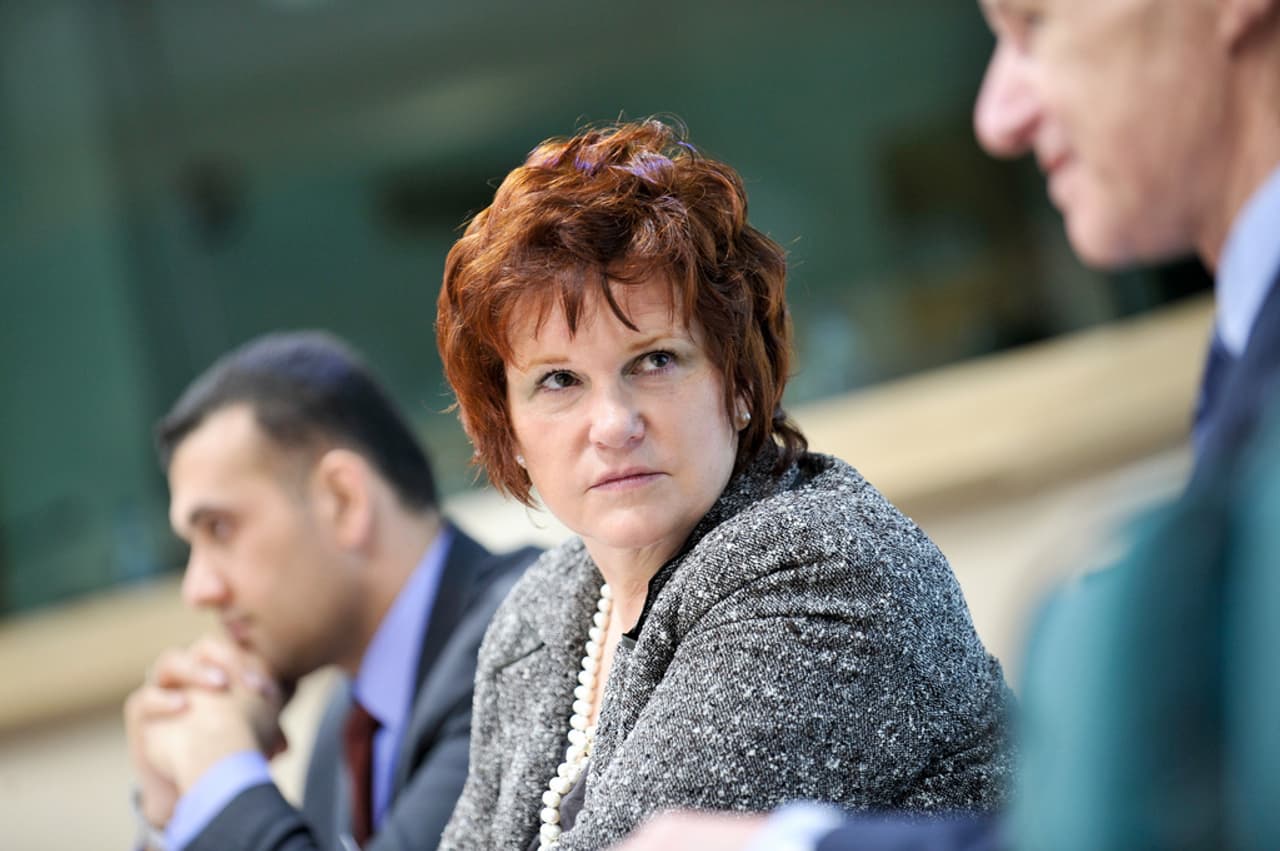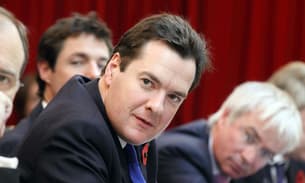
Britain opposes MEPs seeking ban on high frequency trading
Sharon Bowles, Liberal Democrat MEP and chair of the economic affairs committee.
High-frequency trading (HFT) faces possible extinction in Europe as politicians from across the political spectrum join forces to impose restrictions on a practice blamed for two market crashes in recent years.
Several influential MEPs are determined to clamp down on the use of sophisticated computer algorithms and fast connections to generate profits through huge numbers of high-speed trades, after seeing its role in the notorious 2010 US Flash Crash and the collapse of Knight Capital last month.
But behind the scenes, the UK Treasury is trying to water down attempts by EU legislators to impose tough limits on the fiendishly complicated trading systems that generate a significant slice of trading on Europe’s stock exchanges.
– Sharon Bowles MEP
Related story – Robot wars: How high frequency trading changed global markets
They also cite an EU study showing the cost to buy equities has increased 14% in the three years to 2009.
Fuelled by fears over potential market shocks and unease that markets appear dominated by speculators, the European parliament is cracking down on the industry through the revised Markets in Financial Instruments Directive (Mifid), which shapes financial markets across the European Union.
The Bureau spoke to six MEPs from a range of parties and found broad parliamentary agreement on reforms including introducing ‘circuit breakers’ that halt trading at large, sudden movements in prices and limiting the number of orders that traders cancel – an idea said to be gaining ground.
Sharon Bowles, the Liberal Democrat chair of the European parliament’s powerful economic affairs committee, which is steering the HFT proposals, said: ‘The jury’s still out on whether high-frequency trading does anybody any good, and as more quite significant fund managers and others say they don’t want it, it may be that it disappears.’
Related story – Inside the European negotiations that could rein in HFT
‘There are some systemic risks that need to be addressed,’ said Kay Swinburne, a Conservative MEP and former investment banker, who warned that European markets were not immune from the sudden shocks that have hit US markets. ‘The flash crash could happen here: our system’s automatic stops would kick in automatically so it wouldn’t be as dramatic, but we could still have a 10% drop before the circuit breakers kick in.’
The UK’s official response, made jointly through the Treasury and the City watchdog, the Financial Services Authority, supports HFT, arguing it increases liquidity and cuts trading costs. While supporting ‘steps to enhance stability and protect against market abuse’, the Treasury does not support European moves requiring HFT firms to hold equities for a minimum period.
The Treasury’s position is informed by a research project it commissioned from the Office for Science. Known as the Foresight Group, it consists of two advisory panels. The first is an eight-strong working group overseen by Clara Furse, the former London Stock Exchange chief executive whose tenure spanned the rise of HFT, and Andy Haldane, the Bank of England director responsible for financial stability and an outspoken critic of HFT.
It’s the same old vested interests. The UK government is totally sold on the idea that financial markets are where the future is’
– John Mann MP
Last month, Foresight’s interim paper written by three academics criticised virtually all the EU’s proposals.
A Foresight spokeswoman said: ‘When the final report is published, it will take into consideration a wide range of evidence from academic studies, all of which have been independently peer reviewed to ensure that the findings are of a high standard.’
But a well-placed source close to the Foresight team said the High Level Panel ‘is dominated by providers, not by users’. The three- to four-hour meetings, the insider said, ‘tended to be dominated by industry … It is a concern that the group is like that.’
John Mann, a Labour MP on the Treasury select committee, said: ‘It’s the same old vested interests. The UK government is totally sold on the idea that financial markets are where the future is.’
He added that he would now draw issues raised by the Bureau’s investigation to the Treasury select committee’s attention.
– Remco Lenterman, industry spokesman
‘When Foresight started, [the Bank of England’s Andy] Haldane was very critical. The committee’s now coming to a different conclusion. The data tends to support the claims that we are making.’
Whoever is right, this multibillion-pound industry’s fate will be decided by negotiations between European Union finance ministers and MEPs, which will conclude this year.
Related story – Infographic: Trading at the speed of light
How high-frequency trading works
Equities and foreign exchange trading is no longer the preserve of raucous traders. It is now increasingly conducted remotely by very powerful computers surfing global financial markets logging billions of transactions to establish trading patterns.
Stock exchanges sell space to high-frequency trade (HFT) computers, which use dedicated cables circling the world connecting markets to capture information at lightning speed. Specialist HFT firms, hedge funds and investment banks spray millions of orders every fraction of a second, before cancelling most of them.
The idea is to sniff out what a buyer or seller is prepared to pay. Prices are arbitraged across dozens of exchanges exploiting tiny differences. Equities are held for a fraction of a second and sold at a wafer-thin profit.
Related story – The A to Z of high frequency trading
But as so many shares are traded in this way, the profits can be vast. But so can the losses, as the 2010 Wall Street Flash Crash and the Knight Capital debacle showed. Among the biggest companies in the industry are Getco, Knight Capital, which suffered a $440m trading loss last month, and IMC.
HFT now accounts for 70% of the US stock market and 36% of the UK’s. Its growth owes much to EU rules, which liberalised stock exchanges in 2007. HFT has vastly increased volumes of trades to the benefit of exchanges.




